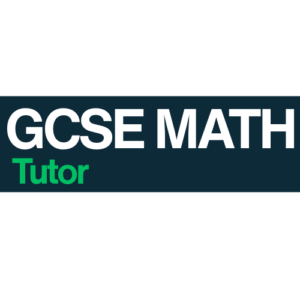Word problems in GCSE Maths are often seen as tricky, but mastering them is essential for exam success. These problems test not just your mathematical ability but your critical thinking, comprehension, and ability to apply knowledge in real-life scenarios. In this guide, we’ll walk through step-by-step strategies to confidently approach word problems, with real examples aligned to the UK National Curriculum. Whether you’re preparing for your GCSE exams or brushing up your skills, this guide from GCSE Math Tutor will simplify the process.
Why Are Word Problems Important in GCSE Maths?
Real-World Application
GCSE Maths word problems connect mathematical theory to practical, everyday scenarios—such as budgeting, travel time, measurements, and percentages. These questions are designed to simulate how maths is used outside the classroom, helping you become not just exam-ready, but life-ready.
Key Topics Often Covered
Percentages & Reverse Percentages
Ratios & Proportions
Averages (Mean, Median, Mode)
Speed, Distance & Time
Algebraic Word Problems
Area, Volume, and Perimeter
Money & Finance
Step-by-Step Approach to Solving Word Problems
Step 1 – Read the Entire Problem Carefully
Don’t rush. Read through the problem at least twice to understand the scenario before even thinking about the maths.
Step 2 – Highlight or Underline Key Information
Identify values, units, keywords (like “difference”, “total”, “increase”, “decrease”, “per”, etc.), and what the question is really asking.
Step 3 – Translate Words into Maths
This is where language becomes numbers. Convert sentences into equations or expressions. For example:
“Sarah buys 3 pens at £1.50 each” → 3 × £1.50 = £4.50
Step 4 – Choose the Correct Operation or Formula
Decide whether you need to add, subtract, multiply, divide, or use a formula like:
Speed = Distance ÷ Time
Area = Length × Width
Percentage Change = (Change ÷ Original) × 100
Step 5 – Solve and Check
Work through your maths step-by-step, then go back and check your working. Make sure your answer makes sense in the context of the problem.
Common Types of GCSE Word Problems (with Examples)
Percentage Increase/Decrease
Question: A phone originally costs £300. It is now on sale for 20% off. What is the new price?
Solution:
20% of £300 = £60
New price = £300 – £60 = £240
Reverse Percentages
Question: After a 20% increase, a laptop costs £600. What was the original price?
Solution:
£600 = 120% → 1.2x = 600
x = 600 ÷ 1.2 = £500
Ratio and Proportion
Question: A recipe uses sugar and flour in a ratio of 2:3. If you use 120g of flour, how much sugar is needed?
Solution:
Flour = 3 parts → 120g → 1 part = 40g
Sugar = 2 parts → 2 × 40g = 80g
Algebraic Word Problems
Question: John is 3 years older than Mary. The sum of their ages is 27. How old are they?
Solution:
Let Mary = x
John = x + 3
x + x + 3 = 27 → 2x + 3 = 27
2x = 24 → x = 12
Mary = 12, John = 15
Practical Tips to Improve Your Word Problem Skills
Practise Daily with Real GCSE Examples
Use platforms like GCSEMathTutor.co.uk to access topic-wise, past-paper styled problems.
Build Vocabulary Awareness
Learn common maths terms and phrases that appear in word problems. For example, “difference” often means subtraction, “of” usually means multiplication.
Break Down Complex Problems
If the question seems overwhelming, break it into smaller, manageable parts. Tackle one sentence or value at a time.
Show All Workings
Even if you’re unsure of the answer, showing your steps can earn method marks in GCSE exams.
Boosting Exam Confidence with Word Problems
Mock Tests & Timed Practice
Simulate exam conditions. Use timers and attempt mixed word problems across topics to build speed and accuracy.
Get Feedback from GCSE Tutors
One-on-one guidance from experienced UK-based tutors at GCSE Maths Tutor can help pinpoint weak areas and refine your strategy.
Final Thoughts – You Can Master Word Problems
Word problems can be intimidating at first, but with the right techniques, consistent practice, and guidance, they can become your strongest area. Remember: these aren’t just maths questions—they’re logical puzzles that you can learn to decode confidently.
For more guides and 1-to-1 support, explore the expert tutoring resources at GCSEMathTutor.co.uk.

